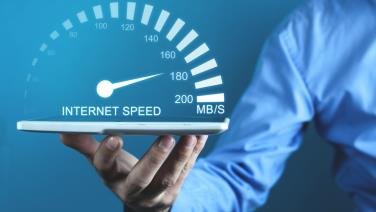Demystifying Your Internet Speed: A Guide to Testing and Understanding Performance

Internet Test SpeedThe internet has become an essential utility in today’s world, powering everything from communication and entertainment to work and education. A smooth and efficient online experience hinges on a critical factor: internet speed. But what exactly is internet speed, and how can you measure it effectively? This comprehensive guide will equip you with the knowledge to your , understand the results, and troubleshoot any potential issues.
Read More: The Business Development Executive: The Growth Engine of a Company
What is Internet speed?
Internet speed refers to the rate at which data is transferred over your internet connection. It’s analogous to the flow of water in a pipe. A wider pipe allows for a faster flow of water, just like a higher internet speed enables quicker data transfer.
There are two primary aspects of internet speed to consider:
- Download Speed: This measures how quickly data travels from the internet to your device. It’s crucial for activities like downloading files, streaming videos, and browsing websites.
- Upload Speed: This reflects how fast data travels from your device to the internet. It’s essential for uploading photos, videos, and other files, as well as for video conferencing and online gaming.
Internet speed is typically measured in megabits per second (Mbps) or gigabits per second (Gbps). Mbps is commonly used for home internet connections, while Gbps is becoming increasingly prevalent for high-speed fiber optic plans.
Why does internet speed matter?
Internet speed significantly impacts your online experience. Here’s how:
- Streaming: A faster download speed is crucial for smooth streaming of videos and music. Lower speeds can result in buffering issues and interruptions.
- Gaming: Online gaming requires a reliable connection with low latency (discussed later) for a seamless and responsive experience. Lag caused by slow internet speeds can significantly hinder your performance.
- Downloading and Uploading: Downloading large files like games, movies, or software applications takes significantly less time with a faster download speed. Similarly, a good upload speed ensures efficient uploading of photos, videos, and other files.
- Video Conferencing: For clear and uninterrupted video calls, both upload and download speeds play a role. A good internet speed ensures everyone involved can see and hear each other without any glitches.
- Web Browsing: While browsing static webpages might not require high speeds, a faster connection generally improves overall browsing responsiveness and reduces page loading times.
Understanding the Factors Affecting Internet Speed
Several factors can influence your internet speed experience:
- Internet Service Provider (ISP): Different ISPs offer varying internet speed tiers in their plans. Choose a plan that aligns with your typical internet usage.
- Connection Type: The type of internet connection you have plays a significant role. Generally, fiber-optic connections offer the fastest speeds, followed by cable internet and DSL.
- Wi-Fi Router: An outdated or inadequate router can limit your internet speed. Ensure your router is compatible with your internet plan and positioned optimally to avoid signal strength issues.
- Number of Devices: The more devices connected to your Wi-Fi network simultaneously, the more it can strain the bandwidth and potentially slow down speeds.
- Network Congestion: During peak internet usage times, your ISP’s network might experience congestion, leading to temporary slowdowns.
Testing Your Internet Speed
Knowing your internet speed is crucial for evaluating your current plan and identifying any potential issues. Here’s how to test it:
- Choose a Tool: Several reliable tools are available online. Popular options include Speedtest by Ookla [Speedtest by Ookla], Fast.com by Netflix [Fast.com], and Google Fiber Speed Test [Google Fiber Speed Test].
- Run the Test: Visit the chosen speed test website or launch the app (if available). Most tools offer a simple “Start Test” button.
- Interpreting the Results: The test will typically display your download speed, upload speed, and latency (ping) in Mbps or Gbps.
- Understanding Latency: Latency, measured in milliseconds (ms), represents the time it takes for data to travel from your device to a server and back. Lower latency is ideal for real-time applications like online gaming and video conferencing.
Here’s a general guideline for interpreting internet speeds:
- Download Speed:
- Below 5 Mbps: suitable for basic web browsing and emailing.
- 5–25 Mbps: supports streaming standard-definition videos and online gaming (with potential limitations).
- 25–100 Mbps: Ideal for streaming high-definition videos, online gaming, and downloading large files.
- Above 100 Mbps: Excellent for bandwidth-intensive activities like 4K streaming, online gaming with high requirements, and



